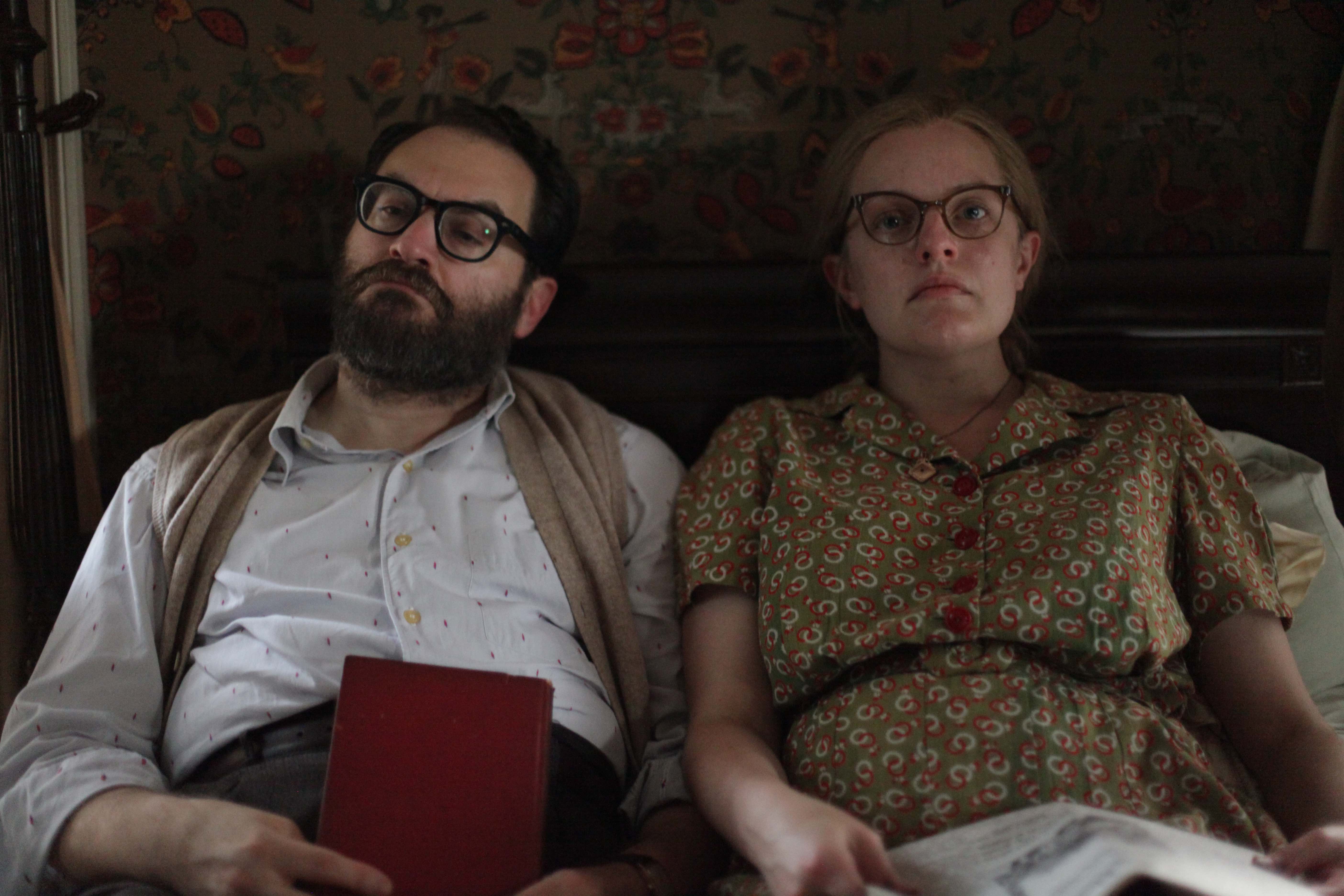by Chris Feil
 Josephine Decker’s Shirley opens with the false optimism of young love with a couple in the mold of American idealism. Over the film’s volleying and spry 107 minutes, Decker curdles it with subversion by focusing on their dismantler: the genius writer Shirley Jackson, played by Elisabeth Moss.
Josephine Decker’s Shirley opens with the false optimism of young love with a couple in the mold of American idealism. Over the film’s volleying and spry 107 minutes, Decker curdles it with subversion by focusing on their dismantler: the genius writer Shirley Jackson, played by Elisabeth Moss.
The couple at the center, Rose (Odessa Young) and Fred (Logan Lerman), arrive in a college town already imbalanced, favoring the advancement of his studies over her own. Fred is under the leadership of writer and professor Stanley Hyman (Michael Stuhlbarg), the husband of Jackson, with Rose and Fred taking up residence in their booze-drenched home. The young couple disrupts their existence with tranquility and squareness, but Rose’s curiosity and oppression halts a patch of writer’s block for Shirley. The film crescendos with the status quo of the campus upper crust, Rose’s intoxication with Shirley, and the wringing of Shirley’s next masterpiece.
Decker’s themes cross some orbit with her previous film, the maddening and wondrous Madeline’s Madeline. That film tackled artistic ethics and the disorientation of an identity projected onto you; Shirley provides another manipulative artist and vulnerable young woman, still feverishly mired in the creative process. But Shirley’s rage mixes with desire, unpacking marriage (and especially the role of women within) as both a contract and construct. Everything Decker is doing deftly dodges cliches of period films, biopics, and marriage dramas alike, making for an uncommon composed example of each of those genres that simultaneously critiques them. The meta-fictional aspect is subtler here than Madeline, but still fascinating.

Here Decker works with elevated production values without compromising her outré sensibilities. The film swirls into fits of rage, elliptical or mirrored in its chapters to frustrate you and evade your grasp, the soundscape weaving in and out of time and temporality. Decker perches close to her Shirley at monstrous angles with the camera like her co-conspirator, a devil on her shoulder as shot by Sturla Brandth Grøvlen. But the most arresting and discomfiting element comes from the brilliant score by Tamar-kali, threading the emotional truths and tensions of Decker’s intimate portrait to exciting, original effect.
For what seems the first time, Moss, our current resident onscreen madwoman, is playing a woman who is fully aware of that moniker being used against her - but that doesn't mean her Shirley embraces it. Instead, she uses that perception against them to topple their hypocrisies. She’s not mad, you see, she just can’t abide you or what you uphold. Moss overflows like a howling tea kettle steadily emptied and refilled, unleashing caustic wit and resenting vulnerability in unexpected rhythms. Here she somewhat subverts her recent typecast from the inside, but this reminds us that the reason she owns this title is her trademark unpredictability.
Elsewhere, Stuhlbarg makes for an inspired sparring partner, matching Moss’s heights with equally erratic swings of blunt cruelty. We’re left to linger with their complex relationship, warm and toxic in competing measures, an alliance with the power to destroy others if not eachother. After Madeline, another queasy, deceivingly cathartic ending is on the books.
Grade: A-
Shirley is now available on Hulu and VOD!